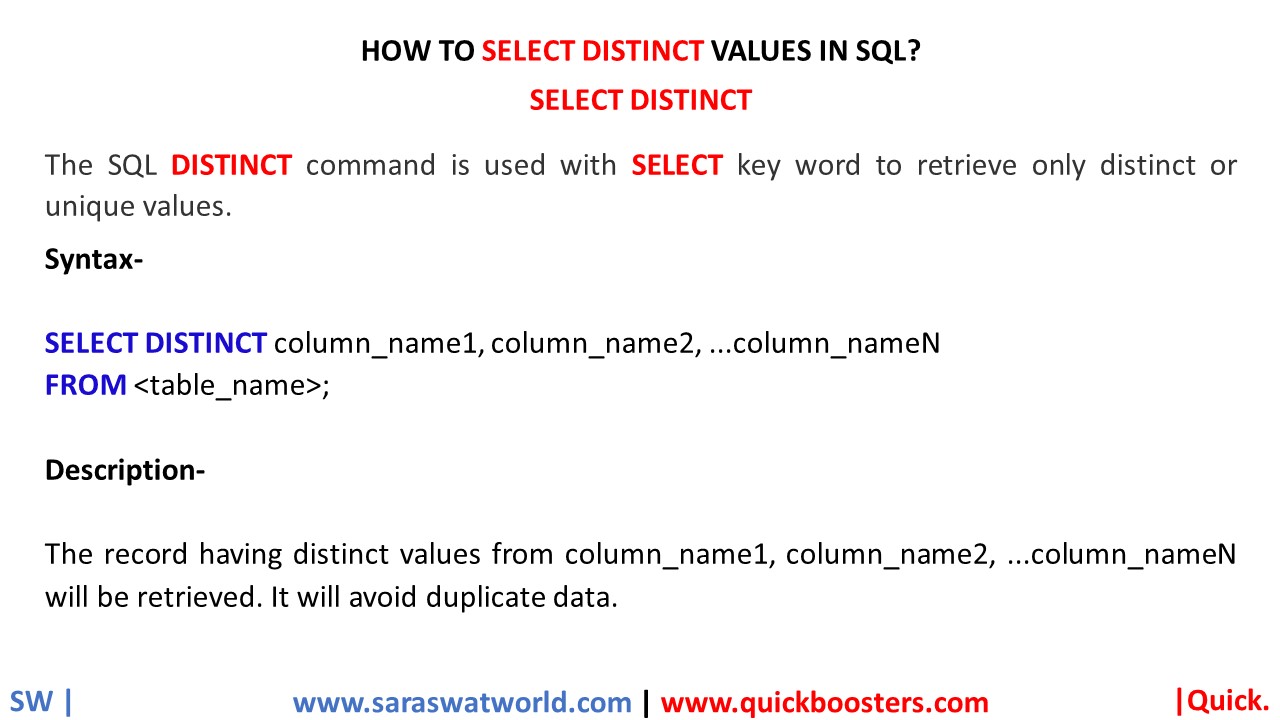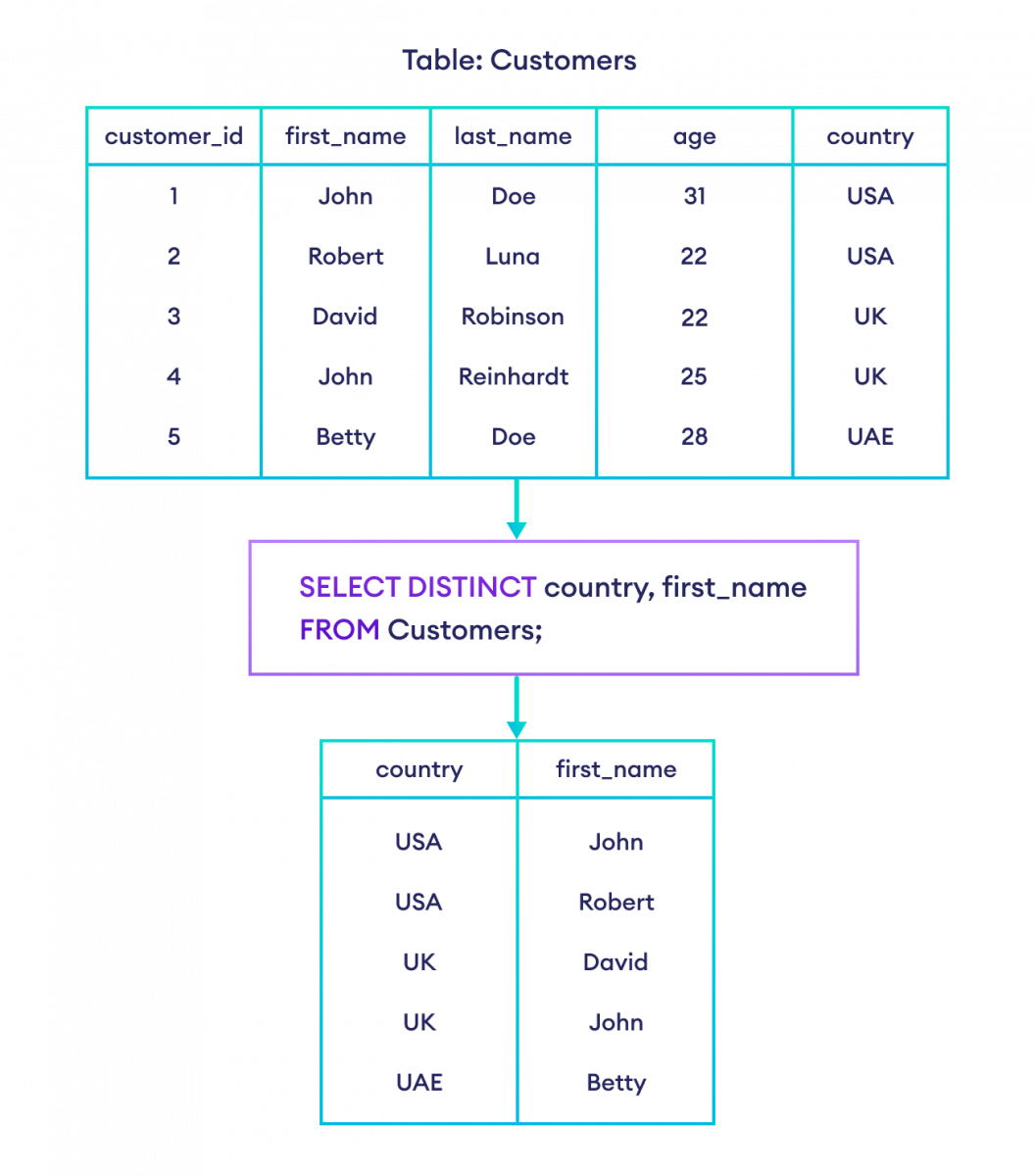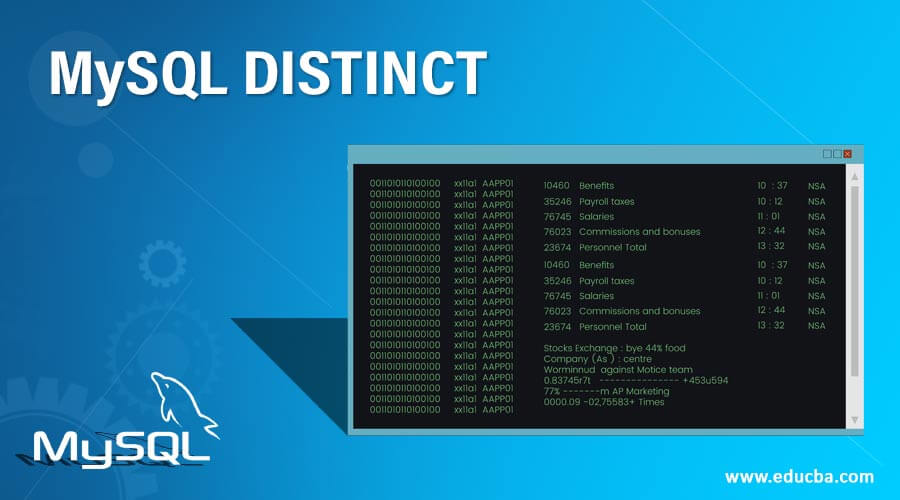Sql How To Use Distinct
Whether you’re planning your time, mapping out ideas, or just want a clean page to brainstorm, blank templates are incredibly helpful. They're simple, versatile, and easy to adapt for whatever you need.
Stay Flexible with Sql How To Use Distinct
These templates are ideal for anyone who wants freedom with a bit of order. You can print as many as you like and fill them out by hand, making them ideal for both home and office use.

Sql How To Use Distinct
From graph pages and lined sheets to checklists and planners, there’s plenty of variety. Best of all, they’re easy to download and printable at home—no signup or extra tools needed.
Free printable blank templates keep things tidy without adding complexity. Just pick what fits your needs, print a few, and start using them right away.

How To Use DISTINCT Statement In SQL Server 2008 YouTube
May 17 2011 nbsp 0183 32 SQL gt Oracle SQL allows us to ignore the case of database object names provided we either create them with names all in upper case or without using double quotes We all know that to select all columns from a table, we can use SELECT * FROM tableA Is there a way to exclude column(s) from a table without specifying all the columns? SELECT * [except …

SQL Part 6 How To Use DISTINCT In SQL DISTINCT Query In SQL
Sql How To Use DistinctSep 15, 2008 · The CASE statement is the closest to IF in SQL and is supported on all versions of SQL Server. SELECT CAST( CASE WHEN Obsolete = 'N' or InStock = 'Y' THEN 1 ELSE 0 … SQL SQL S Q L Structured Query
Gallery for Sql How To Use Distinct

SELECT DISTINCT Statement In MySQL How To Select Distinct Records

How To Use SQL DISTINCT And DISTINCTROW To Retrieve Unique Values In MS

Como Usar La Cl usula DISTINCT En La Base De Datos SQL Server Con

HOW TO SELECT DISTINCT VALUES IN SQL QuickBoosters

SQL SELECT DISTINCT Statement

MySQL DISTINCT Clause How To Display Unique Values From A MySQL

MySQL DISTINCT Guide To MySQL DISTINCT With Query Examples

SQL SELECT DISTINCT Statement

Bitburner Server Order Ratemypikol

SQL DISTINCT